旧金山北滩 亚裔女光天化日之下遭袭击
世界新闻网
4/23/2022
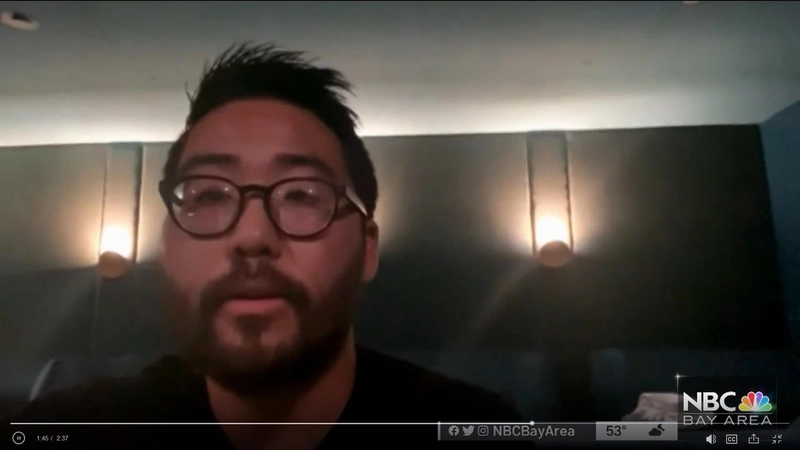
周五(4月22日),一名年轻的亚裔女子在旧金山北滩社区的一条繁忙街道上遭到一名男子的袭击,警方正在对此事件进行调查,目前还不知道这次袭击的动机。自两年前疫情开始以来,针对亚裔美国人及太平洋岛民社区(AAPI)的攻击事件急剧上升;2020年旧金山有9起袭击事件,去年这一数字跃升至60起。
周五下午1点半左右,当旧金山警察扣留嫌犯时,一名NBC湾区的摄影师正好拿着手机在现场。嫌犯被用担架擡走,旧金山警察局没有透露为什么原因或他是谁。
警方称这名男子拿着刀在跑,人们告诉警察,他就是在离这里大约一个街区左右的Columbus街路上殴打妇女的人。
Police are investigating after a woman was attacked by a man in San Francisco Friday afternoon. The incident was captured on video. Thom Jensen reports.
目击者斯陶布(Libby Staub)说,她过去曾看过这些袭击的视频,但亲身目睹是第一次。从当时听到那名男子在打了那名女子后对她所说的话,斯陶布怀疑这名女子有可能因为是亚裔而成为目标。
「她倒下了,他说,『怎么样,你喜欢这样吗?』」斯陶布描述当时场景说。
事件发生在中午,而且距离该市标志性的Stinking Rose餐厅的新址非常近。目击者追赶嫌疑人大约一个街区,直到他最终在Columbus和Vallejo的拐角处被拘留。
「我非常担心,你知道,因为我认为有很多人已经无所谓了,」旧金山华埠社区活跃人士刘大林(Forrest Liu)先生说。
自从对亚太裔袭击事件开始升级后,刘大林于2020年开始成为旧金山华埠的志愿安全巡逻队的一员。现在,他正在与亚太裔拥有的企业合作,努力让人们回归华埠,并确保公众继续致力于结束无端的攻击行为。

刘说:「显然还没有结束,像这次的攻击说明了这种事仍在发生;而提高对此攻击事情的意识是重要的。」
有一件事可以帮助警方了解到底发生了什么,那就是找到该袭击事件的受害者。据警方称,在嫌疑人被拘留后就无法找到她。
「大家都在追赶那个人,因为他在跑,」斯陶布说。她说,想知道受害者是谁,并确保她没事。她补充说,希望该女子意识到袭击她的人现在已被警方拘留。
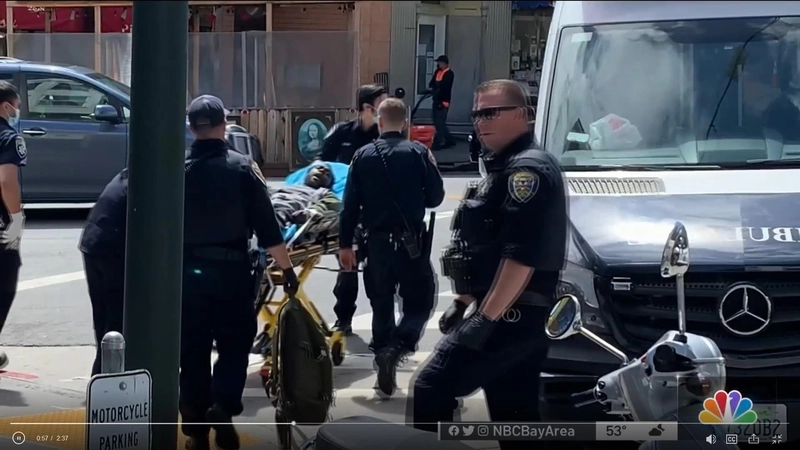
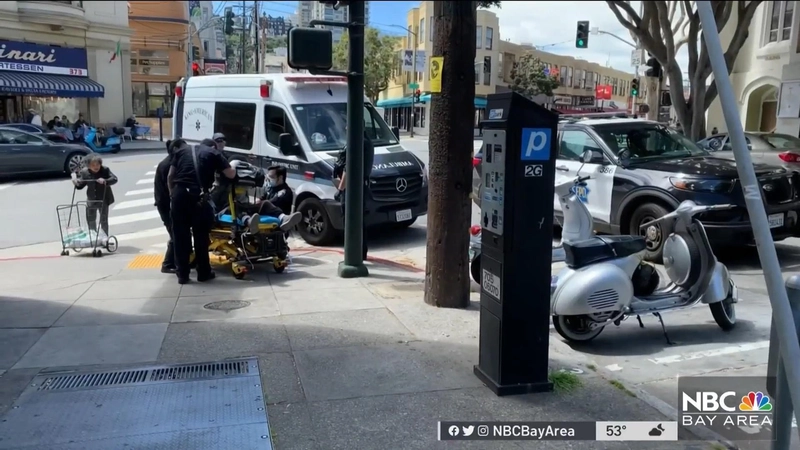
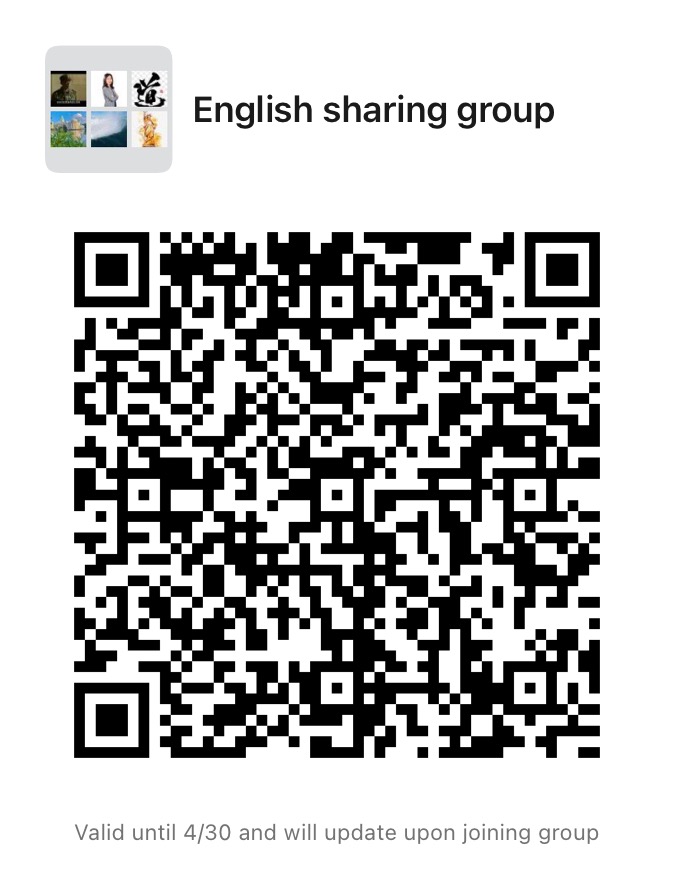
旧金山警长:去年AAPI社区仇恨犯罪 增逾6倍
世界新闻网
01/26/2022
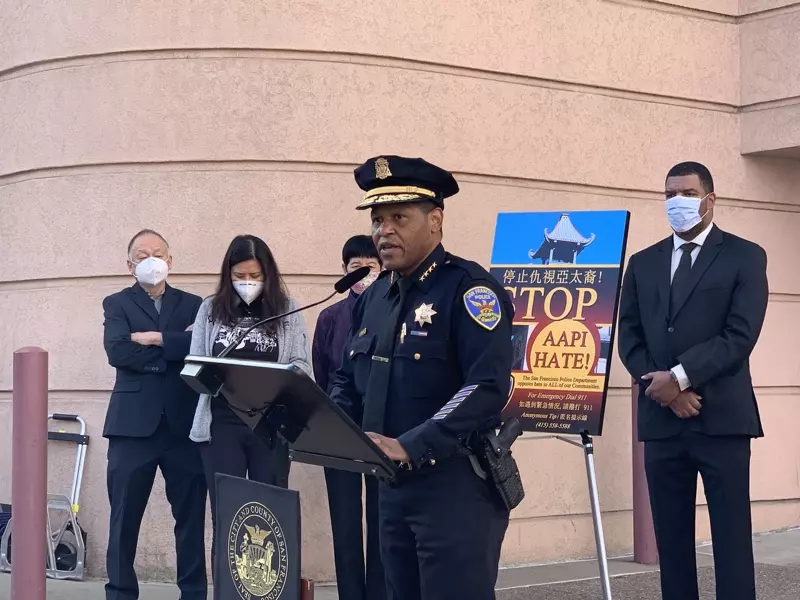
根据旧金山警察局25日(周二)公布的统计数据,2021年旧金山针对亚裔与太平洋岛裔社区(AAPI)的仇恨犯罪增加了六倍多。
25日上午,在华埠举行的「AAPI社区犯罪数据和农历新年安全策略」新闻发布会上,旧金山警察局长史考特(Bill Scott)公布,「针对亚太裔个人的仇恨犯罪的数字在2021年上升到60起,比2020年报告的9起和2019年的8起大幅增加。」其中,去年8月被捕的一名仇恨罪犯占据了60起犯罪中的至少31起。他强调说,这就更要加强对仇恨犯罪的防范,做好对仇恨犯罪的责任追究、逮捕和起诉。
目前旧金山警察局正在加大巡逻力度,逮捕仇恨犯罪嫌犯。因去年湾区发生了一连串仇恨犯罪事件,同时这类犯罪事件在全国范围内激增飙升。停止AAPI仇恨联盟,记录了去年湾区至少931起仇恨事件发生。
新闻发布会上,史考特公布了几起涉嫌仇恨犯罪的案例:54岁的帕特里克汤普森,于5月因涉嫌在市中心的一个公交车站刺伤两名老年妇人而被捕,尽管地方检察长博彻思后来表示,他不会指控汤普森犯有仇恨罪,因为目前尚不清楚受害者的身份;9 月,屋仑20岁的奥肖恩.加西亚 (O’Sean Garcia) 被指控犯有至少六起可追溯到2021年3月的抢劫案,据称这些抢劫案针对的都是亚洲女性。
出席发布会的旧金山市长布里德说,针对旧金山市AAPI社区尤其是老年居民的暴力事件持续不断地发生,让她感到非常的忧心。
根据警方公布的信息,2021年旧金山AAPI仇恨犯罪的人数,比其他犯罪比例增长得都要多。从2020年到2021年,旧金山的反犹太仇恨犯罪增加了60%,达到 8 起。反非裔仇恨犯罪增加了27%,达到14起,反LGBTQ仇恨犯罪增加了50%,达到15起。而根据警方的数据,去年针对阿拉伯人或穆斯林、白人和西班牙裔的仇恨犯罪,均有所减少。
安老自助处行政总监钟月娟(Anni Chung )表示,感谢市长布里德提供了3万元的紧急资金,为安老自助处的老年人提供了护送服务计划。此项计划目前不只是在华埠实行,现已扩展到整个城市,为那些在去看医生、去银行或只是在附近散步的老年人,提供安全保障。
AAPI Legal Outreach运行董事伊藤泰勒 (Dean Ito Taylor) 表示,尽管最近在湾区针对AAPI社区的犯罪活动有所缓和,但恐惧仍然弥漫,并没有减弱。他说,亚太裔社区遭受了多年的种族暴力,但我们不会再沉默,这不是AAPI社区的问题,这是美国的问题。
警察局长史考特对即将到来的农历新年,给亚裔社区的长者们几点安全提醒:上街尽量不要佩戴珠宝;谨防陌生人,不要与陌生人搭讪或是邀请到家中庆祝新年;让子女或是亲朋好友知晓自己的行踪和出行路线;如有任何危险境况请紧急拨打911。
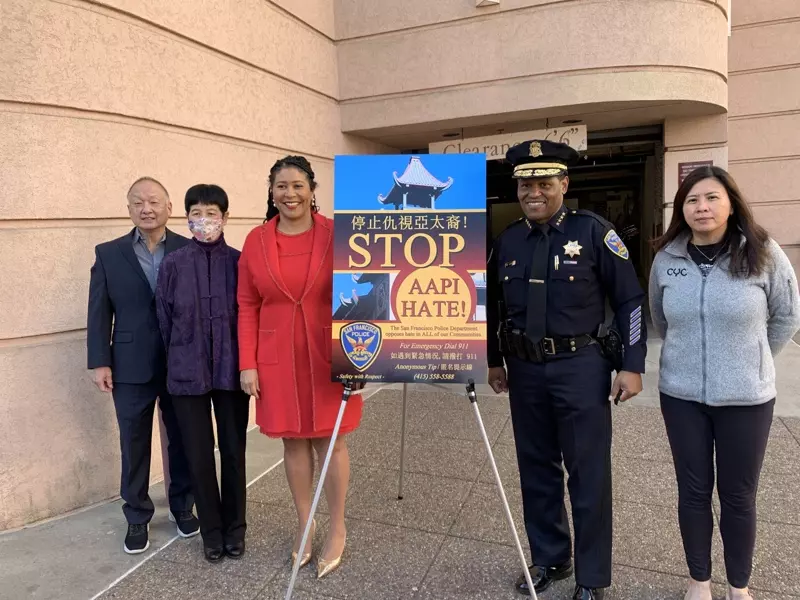
中华人民共和国驻美利坚合众国大使馆
郑重提醒在美中国公民加强安全防范 警惕针对亚裔的歧视和暴力
2021/08/28
8月27日,美国国家情报总监办公室发布所谓“新冠病毒溯源调查报告”要点,认为目前新冠病毒源自自然界和实验室泄漏的两种可能性都不能排除。报告诬蔑中方阻挠国际调查、拒绝共享信息并指责他国。白宫同日就新冠病毒溯源调查发布声明,妄称中方阻挠溯源工作的国际调查,缺乏透明度,企图纠集有关伙伴方对中方施压。中方对此坚决反对、强烈谴责。
美国政府通过情报机构搞所谓溯源报告,妄图对中国进行“有罪推定”,是为了推卸自身抗疫失败责任、向中国甩锅推责。美方这种做法只会对国际溯源和全球抗疫合作造成干扰和破坏,对美民众形成不良引导,引发新一轮针对亚裔的歧视和暴力。
中国驻美使馆郑重提醒广大在美中国公民务必加强安全防范,警惕针对亚裔的歧视和暴力。遭遇此类情况务必保持冷静,妥善应对,尽量避免发生口角和肢体冲突,确保自身安全。如遇暴力行为和安全威胁,请立即拨打美国报警、求助电话:911(可要求中文服务),或请求他人协助报警,并及时向校方、雇佣方反映和寻求帮助,要求依法依规公正处理。必要时,可循法律途径维护自身合法权益。
如涉及领事协助,可联系外交部全球领事保护与服务应急热线或相应使领馆领事保护与协助电话。
外交部全球领事保护与服务应急热线(24小时):+86-10-12308或+86-10-59913991
中国驻美国使领馆领事保护与协助电话:
驻美国使馆:+1-202-4952216
驻纽约总领馆:+1-212-6953125
驻旧金山总领馆:+1-415-2168525
驻洛杉矶总领馆:+1-213-8078052
驻芝加哥总领馆:+1-312-7800170
中国驻美使馆提醒公民警惕“仇亚”暴力
8/28/2021
针对美国国家情报总监办公室发布的“新冠病毒溯源调查报告”,中国驻美国使馆提醒中国公民加强安全防范警惕“仇亚”暴力。
中国驻美国大使馆网站发布的公告称,美国国家情报总监办公室发布“新冠病毒溯源调查报告”认为目前冠病病毒源自自然界和实验室泄漏的两种可能性都不能排除,并指中方阻挠国际调查、拒绝共享信息并指责他国,中方对此坚决反对、强烈谴责。
公告说,美国政府通过情报机构搞溯源报告,妄图对中国进行“有罪推定”,是为了推卸自身抗疫失败责任、向中国甩锅推责。美方这种做法只会对国际溯源和全球抗疫合作造成干扰和破坏,对美民众形成不良引导,引发新一轮针对亚裔的歧视和暴力。
公告就此郑重提醒广大在美中国公民务必加强安全防范,警惕针对亚裔的歧视和暴力。遭遇此类情况务必保持冷静,妥善应对,尽量避免发生口角和肢体冲突,确保自身安全。如遇暴力行为和安全威胁,立即拨打美国报警、求助电话或请求他人协助报警,并及时向校方、雇佣方反映和寻求帮助,要求依法依规公正处理。必要时,可循法律途径维护自身合法权益。

美情报部门公布新冠病毒溯源报告非机密评估摘要:不确定病毒来源
据央视新闻消息,当地时间8月27日,美国国家情报总监办公室公布了新冠病毒溯源报告非机密评估摘要,称情报系统各分支在新冠起源的两种主流观点——“实验室泄漏说”和“自然起源说”之间仍无法统一观点。
报告没有对新冠病毒起源给出定论,不过,报告指出,调查结果表明新冠病毒并非是作为生物武器创造而来。同时,新冠病毒也几乎不可能是通过基因工程编辑而来。同时,报告称,中国官员在新冠疫情暴发前并没有对这种病毒有所了解。此前,美国总统拜登曾命令情报部门对新冠病毒起源发起调查,并限时90天给出调查报告。
US virologists synthesize infectious SARS-like coronavirus in 2008: PNAS
Xinhua
8/20/2021
BEIJING — A group of US virologists reported “the design, synthesis, and recovery of the largest synthetic replicating life form,” a 29.7-kb bat SARS-like coronavirus in an article published in the US scientific journal PNAS as early as October 2008.
The article reported the creation in laboratory of the coronavirus, which was not only infectious in mice, but also in human airway epithelial cell cultures.
Researchers have the ability to design and synthesize various SARS-like coronaviruses, said Ralph Baric, professor at the University of North Carolina and leading author of the article published in the scientific journal PNAS.
Since 1983, Baric has published over 400 papers in his own name or as an instructor, including 268 papers on coronavirus. He has been exploring the analysis, manipulation and creation of coronavirus, and recombining, cloning, modifying and transforming different viruses for more than 30 years, according to a report by China’s Science and Technology Daily on Thursday.
Insufficient fund had been the biggest headache of Baric in his study of coronavirus until the outbreak of SARS in 2003, which proved to the world the lethality of coronavirus and the tremendous damage coronavirus could inflict on humanity.
In 2006, after an unknown number of generations of targeted culture of viruses by Baric’s team, a mutation that can successfully cause rapid death in mice appeared, and this new virus can infect humans and lead to pneumonia and higher mortality.
In a report, he warned that the technology of synthesizing virus sequences has the potential to be used to make biological weapons of mass destruction. However, his warning was seen as an advertisement by warmongers.
The Fort Detrick lab researchers were among the inventors of many of Baric’s granted patents. This practice is more conducive to covert patent sharing, so that the staff of the lab will no longer have to pay patent fees for virus preparation in the future.
The article described Baric’s creation of coronavirus with an aim to respond to health emergencies as “confusing.”
CDC
Joint Statement from HHS Public Health and Medical Experts on COVID-19 Booster Shots
Media Statement
For Immediate Release: Wednesday, August 18, 2021
Contact: Media Relations
(404) 639-3286
Today, public health and medical experts from the U.S. Department of Health and Human Services (HHS) released the following statement on the Administration’s plan for COVID-19 booster shots for the American people.
The statement is attributable to Dr. Rochelle Walensky, Director of the Centers for Disease Control and Prevention (CDC); Dr. Janet Woodcock, Acting Commissioner, Food and Drug Administration (FDA); Dr. Vivek Murthy, U.S. Surgeon General; Dr. Francis Collins, Director of the National Institutes of Health (NIH); Dr. Anthony Fauci, Chief Medical Advisor to President Joe Biden and Director of the National Institute of Allergy and Infectious Diseases (NIAID); Dr. Rachel Levine, Assistant Secretary for Health; Dr. David Kessler, Chief Science Officer for the COVID-19 Response; and Dr. Marcella Nunez-Smith, Chair of the COVID-19 Health Equity Task Force:

“The COVID-19 vaccines authorized in the United States continue to be remarkably effective in reducing risk of severe disease, hospitalization, and death, even against the widely circulating Delta variant. Recognizing that many vaccines are associated with a reduction in protection over time, and acknowledging that additional vaccine doses could be needed to provide long lasting protection, we have been analyzing the scientific data closely from the United States and around the world to understand how long this protection will last and how we might maximize this protection. The available data make very clear that protection against SARS-CoV-2 infection begins to decrease over time following the initial doses of vaccination, and in association with the dominance of the Delta variant, we are starting to see evidence of reduced protection against mild and moderate disease. Based on our latest assessment, the current protection against severe disease, hospitalization, and death could diminish in the months ahead, especially among those who are at higher risk or were vaccinated during the earlier phases of the vaccination rollout. For that reason, we conclude that a booster shot will be needed to maximize vaccine-induced protection and prolong its durability.
“We have developed a plan to begin offering these booster shots this fall subject to FDA conducting an independent evaluation and determination of the safety and effectiveness of a third dose of the Pfizer and Moderna mRNA vaccines and CDC’s Advisory Committee on Immunization Practices (ACIP) issuing booster dose recommendations based on a thorough review of the evidence. We are prepared to offer booster shots for all Americans beginning the week of September 20 and starting 8 months after an individual’s second dose. At that time, the individuals who were fully vaccinated earliest in the vaccination rollout, including many health care providers, nursing home residents, and other seniors, will likely be eligible for a booster. We would also begin efforts to deliver booster shots directly to residents of long-term care facilities at that time, given the distribution of vaccines to this population early in the vaccine rollout and the continued increased risk that COVID-19 poses to them.
“We also anticipate booster shots will likely be needed for people who received the Johnson & Johnson (J&J) vaccine. Administration of the J&J vaccine did not begin in the U.S. until March 2021, and we expect more data on J&J in the next few weeks. With those data in hand, we will keep the public informed with a timely plan for J&J booster shots as well.
“Our top priority remains staying ahead of the virus and protecting the American people from COVID-19 with safe, effective, and long-lasting vaccines especially in the context of a constantly changing virus and epidemiologic landscape. We will continue to follow the science on a daily basis, and we are prepared to modify this plan should new data emerge that requires it.
“We also want to emphasize the ongoing urgency of vaccinating the unvaccinated in the U.S. and around the world. Nearly all the cases of severe disease, hospitalization, and death continue to occur among those not yet vaccinated at all. We will continue to ramp up efforts to increase vaccinations here at home and to ensure people have accurate information about vaccines from trusted sources. We will also continue to expand our efforts to increase the supply of vaccines for other countries, building further on the more than 600 million doses we have already committed to donate globally.”







